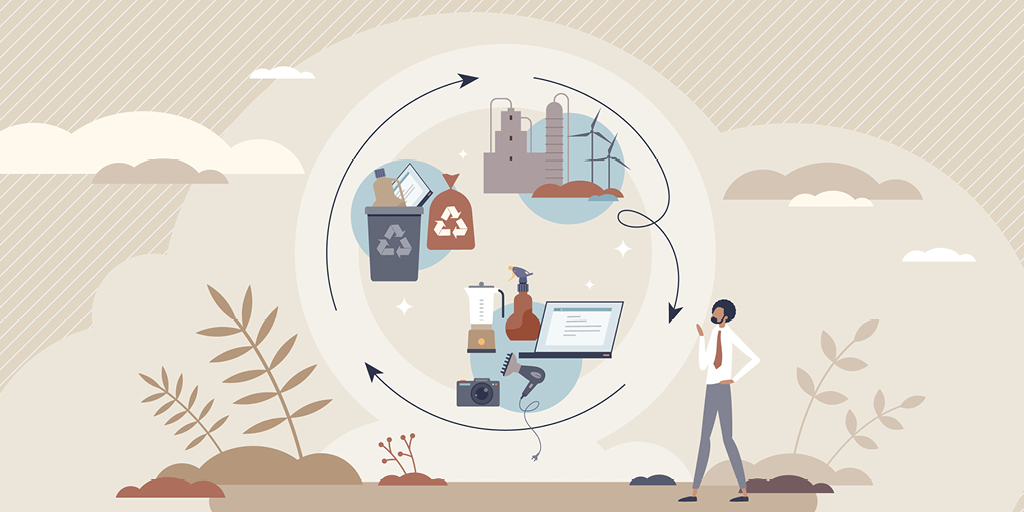Procurement and the Circular Economy Insights from the Deloitte Report on Driving Value through Sustainability
The shift from a linear economy to a circular economy (CE) is gaining momentum globally, driven by regulatory requirements, sustainability goals, and consumer demand. For procurement professionals, embracing circularity is not just about reducing waste but also about unlocking cost savings, driving innovation, and contributing to long-term sustainability. This article explores how procurement can be a strategic player in achieving circularity by driving value beyond cost reduction.
The Circular Economy: A New Paradigm for Procurement
The circular economy is an economic system designed to eliminate waste and extend the life cycle of resources through recycling, reusing, and remanufacturing. Unlike the traditional "take-make-dispose" model, circularity emphasizes resource optimization, ensuring that materials are kept within the production cycle for as long as possible. For procurement, this requires a fundamental shift from focusing solely on cost to considering the environmental and social impact of the entire supply chain.
According to a Deloitte report on procurement in a circular economy, this transition allows procurement departments to play a pivotal role in reducing the environmental footprint of organizations by sourcing sustainable materials and fostering long-term relationships with suppliers who share similar values.
Strategies for Implementing Circularity in Procurement
Prioritize Sustainable Sourcing Sustainable sourcing is at the core of a circular economy. By procuring materials that are recycled or renewable, organizations can significantly reduce their environmental impact. According to Deloitte, companies need to rethink how they select suppliers, prioritizing those that support circular practices. For example, the integration of waste materials into new production cycles is gaining popularity, reducing reliance on virgin resources and cutting carbon emissions.
Collaboration with Suppliers Circular procurement requires strong relationships with suppliers. Instead of transactional relationships, procurement professionals need to work collaboratively with their suppliers to identify opportunities for innovation. By co-developing solutions, businesses can create products that are designed to last longer and be easily disassembled for recycling or refurbishment. Supplier collaboration also fosters trust, transparency, and joint innovation, all critical in moving toward a circular supply chain.
Design for Longevity Products should be designed to last longer, be easier to repair, and have components that can be reused or recycled. Procurement plays a crucial role in selecting materials and suppliers that align with these goals. By doing so, companies can reduce their resource consumption, lower their operational costs, and meet regulatory requirements around sustainability. In fact, a study by the Ellen MacArthur Foundation found that circular economy initiatives could reduce carbon dioxide emissions by up to 48% by 2030.
Leverage Technology for Transparency Advanced technologies like blockchain and Internet of Things (IoT) enable greater visibility across supply chains. Blockchain technology, for instance, allows companies to track products from production to disposal, ensuring transparency and accountability. IoT devices can monitor the condition of materials and assets in real-time, enabling organizations to make informed decisions about maintenance and reuse. The integration of these technologies supports more sustainable procurement decisions and facilitates circular business models.
Regulatory Compliance with environmental regulations is becoming increasingly critical for businesses operating in Europe and beyond. The EU's Circular Economy Action Plan and regulations such as the German "Lieferkettengesetz" require companies to report on the environmental and social impact of their supply chains. Procurement professionals must stay ahead of these regulatory changes by implementing sustainable practices that ensure compliance.
In 2025 and beyond, the transition to a circular economy will provide procurement professionals with the opportunity to take on a more strategic role. By fostering collaboration with suppliers, prioritizing sustainable sourcing, and leveraging technology for transparency, procurement can drive value not only through cost savings but also by contributing to a more sustainable future. In this new paradigm, procurement departments must shift from merely ensuring material availability to actively shaping the environmental and social impact of their organizations.
Stay connected with Langley Search and Interim, a specialized recruitment agency for procurement professionals, to find procurement roles that prioritize sustainability and drive long-term value.


